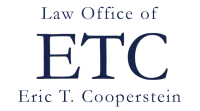Despite lawyers’ efforts to get the best possible results for their clients, sometimes clients are dissatisfied. Their disappointment is often accompanied by finger-pointing; surely someone must be to blame for the outcome of the case besides the client or the opposing party. When the lawyer ends up in the path of that finger, the most common complaint is that the lawyer rarely, if ever, talked to the client and that on the few occasions the lawyer did talk to the client, the lawyer never let the client know what bad events were about to unfold.
For the lawyer who has tried to do everything right, defending against such allegations might be unpleasant but not threatening. Of course the lawyer talked to the client. Quite frequently, in fact. And yes, the lawyer is certain she warned the client about the possible outcome. The client was given the choice of how to proceed and, unfortunately, made a poor choice.
“Sounds great,” says the investigator from the attorney discipline office. “Can I see your notes of those conversations?” “Well, I’m not sure I have notes of every conversation . . . ”
Most of my practice is devoted to defending lawyers against allegations of unethical conduct. As a result, I often review my lawyer-clients’ files for the matters they have handled. This includes not just the substantive documents, such as pleadings, correspondence, financial documents, etc., but also the parts of the file that one typically does not see in the course of discovery, such as the client questionnaires, the e-mails, the time records, and –hopefully– the notes.
In the last few months, however, finding notes in my lawyer-clients’ files has become the exception rather than the rule. I do not doubt my clients when they assure me that there were multiple phone calls with the client and at least a couple of meetings, but there are no specific records of those contacts: when they took place, what was said, how long they lasted. The ethics investigation is suddenly at risk of being reduced to a battle between “Did not!” and “Did so!” The disgruntled client may be regarded as having a legitimate gripe.
Why bother taking notes?
The value of taking notes should not be underestimated. Beyond providing a first line of defense against a client’s ethics complaint, notes can be helpful in tracking previous conversations with a client. The client does not then have to repeat information or suspect that the lawyer cannot remember the client’s case. For clients who challenge a bill or later demand a copy of the file, the notes fill in the gaps between written contacts with the client and show how attentive the lawyer was to the client’s case (under most states’ ethics rules, your notes are part of your clients’ files and belong to them, so avoid excessive doodling and gratuitous comments about your clients’ mental health). Your notes will also provide the chronology of events on which you may need to rely when explaining your decision to withdraw to the client or the court.
Contingent and flat fee lawyers who eschew time keeping seem to be more prone to avoiding note-taking, perhaps a byproduct of their attempts to streamline their practices. Lawyers who do not keep time records are probably in greater need of good notes than lawyers who bill hourly and can use their timesheets to track very brief conversations with clients, some of which may be written-off. The inconvenience of taking notes while talking to clients from a cell phone while walking, driving, or waiting for some other appointment to begin may have led many busy lawyers to get out of the practice of taking notes. Whatever the reason, the time lawyers save on the front end can come back to bite them on the other.
Making record-making a habit
Note-taking should be a habit, hopefully one developed early in a law practice. Personally I think that hand-written notes are the most efficient way to make a record of a conversation with a client, but it doesn’t matter whether the notes are handwritten, entered into your practice management software, typed into a Word document, scrawled on your iPhone or iPad, or dictated to your legal assistant. The goal is to create a record of the date and time that you talked with the client and, even for short conversations, some indication of the subject matter that was discussed. Lawyers should do the same for conversations with opposing counsel, witnesses, court clerks, prospective clients, supervising lawyers, and so on. If you are talking, there should be a notepad or a keyboard in front of you.
In addition to the client’s name, the date, and at least some brief description of what the conversation, it is a good idea to note whatever advice or instructions the you gave the client. It is also wise to spend an extra few minutes after the conversation ends to fill in details you did not have time to record and clarify on paper the advice you orally gave the client. At the end of the conversation or meeting, I typically also record in the margin the length of the conversation, usually in tenths of an hour. This can help corroborate the fees you charged a client and refresh your recollection years later about the length of a conversation.
Taking notes is a lot like wearing a seat belt: 99% of the time it probably doesn’t matter whether you do it or not but it is the other 1% that you are preparing for. Take notes. The license you save may be your own.
(Photo: http://flic.kr/p/8HNqQi)
